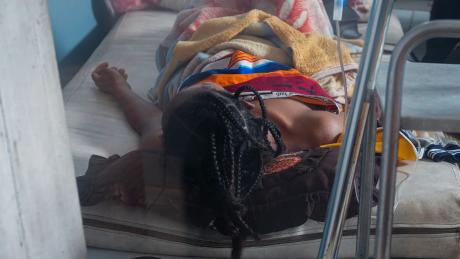
When a young woman in Madagascar’s southeast attended a clinic supported by MAF flights, she did not realise she was about to receive treatment that would save her life.
Story by Antsatiana Gino Randrianasolo
Twenty-four-year-old Bricela Dadinika had been suffering from severe weakness and blood loss. At first, her family never thought the symptoms related to pregnancy.
A visit to the village health centre was inconclusive. They were unable to identify the reason behind her illness.
When HoverAid’s medical team was flown by MAF to nearby Nosy Varika, Bricela’s family brought her along for a consultation without much expectation.
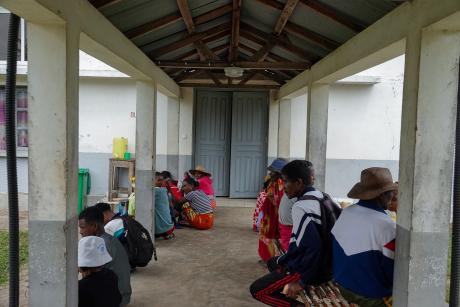
But during the ultrasound, the medical team revealed a life-threatening situation: Bricela was experiencing an ectopic pregnancy.
“She was immediately moved from being a normal patient to an urgent case,” said Olivier Rakotomampianina, HoverAid’s anaesthetist.
Thankfully, the team was able to successfully complete surgical treatment for Bricela.
She was immediately moved from being a normal patient to an urgent case
“Without the team coming, we wouldn’t have known what was wrong,” said Bricela’s grandmother. “We could never have paid for such a surgery.”
HoverAid, much like MAF, exists to reach the unreachable. Based in Madagascar’s capital but operating in different regions around the country, it can easily take HoverAid teams more than two days to reach places such as Nosy Varika by road – routes that can be flown by MAF in less than an hour.
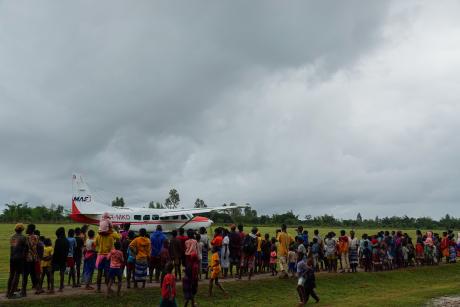
“The people in the capital city take basic health care for granted,” said Andriamalala Manoa Fanamperana, MAF’s Operations Officer. “But the reality is very different in the bush.”
MAF provides HoverAid flights to various areas where people lack access to healthcare because of isolation and poverty.
HoverAid Medical Project Manager Maholinirianaharijaona Sidonie Tatiana described the teamwork involved in each medical clinic.
The people in the capital city take basic health care for granted
“Our medical safari missions gather volunteer doctors, surgeons, and anaesthetists from different hospitals and health centres,” she said.
Depending on availability, these volunteers give their time to serve patients in remote areas.
For the past two years, HoverAid and MAF have been journeying to Nosy Varika, a coastal town in the southeast of Madagascar, where Illnesses like bilharzia remain widespread and the demand for care far exceeds what is available.
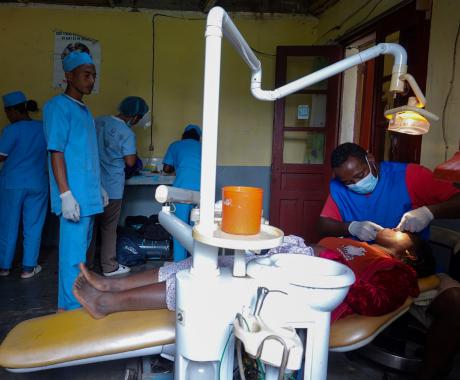
Bricela is just one patient who has benefited from this ministry.
Not aware that she was carrying a child, Bricela’s family believed her symptoms were a result of working hard on the land.
“She is not sitting in an office; she is a farmer,” her grandmother explained.
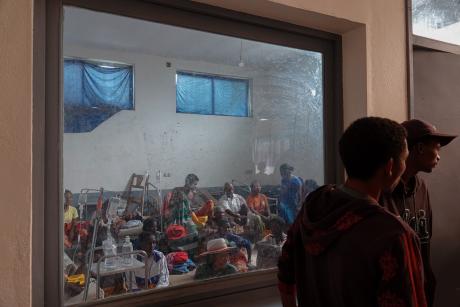
This would have been her first child, but things did not go as they hoped.
Olivier reassured the family, “She can still have children in the future but, for now, she just needs to heal emotionally and physically.”